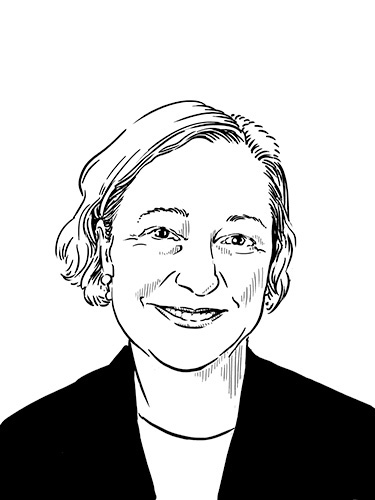Is old age something worth striving for, Heike Bischoff-Ferrari?
Text: Heike Bischoff-Ferrari, geriatrician
Everyone hopes to live a long life. But how do we stay fit and healthy for as long as possible? What new questions arise as life expectancy increases? Answers from geriatric medicine.
Most people don’t want to live to a very old age at any cost. The prospect of becoming increasingly functionally impaired and losing our independence is not particularly appealing. Instead, what we all want is to extend our healthy years of life, while keeping any period of frailty to an absolute minimum. Therefore, advanced age is especially worth striving for if we can stay healthy and active longer.
Slowing our biological aging process is central to this endeavor, as aging is the main risk factor in all chronic illnesses including cancer, dementia and cardiovascular diseases.
The rapid aging of our population is one of the key issues of our times. Since 2020, for the first time in history, we have more people over the age of 65 than children under the age of five. Projections suggest that by 2050, one in three people in Europe will be aged 65 and over.
However, healthy life expectancy in Europe (64 years on average) is trailing behind total life expectancy (80 years on average). Switzerland is Europe’s frontrunner in both total and healthy life expectancy — 84 and 71 years on average, respectively — creating an enormous economic and general societal advantage, with which Switzerland could position itself as a model country for healthy longevity. In comparison, Germany and the U.S. are facing huge economic and healthcare challenges as healthy longevity is declining.
In the last 10 years, science has established novel markers that directly measure biological aging. The measurement of these molecular markers in cohort studies found that men and women who are physically active and eat a healthy diet not only have fewer chronic diseases when they get older, but also present a younger biological age than their chronological age. Such analyses support healthy lifestyle factors as key levers that directly influence how we age. This opens up new opportunities to prevent chronic illnesses and loss of function efficiently.
Today, we know that our genes account for just a small proportion (10 to 30 percent) of the variability in our life expectancy. The rest (70 to 90 percent) is determined by our environment, socioeconomic factors and, crucially, our lifestyle. Lifestyle factors are now the most promising — and accessible — factors we can leverage to extend our healthy life expectancy. These include a healthy Mediterranean diet, walking 6,000 to 8,000 steps a day, social interaction, seven to eight hours of sleep, meditation or mindfulness training, learning new things and not smoking.
The additive benefits of three simple lifestyle factors has been documented by the DO-HEALTH study, the largest European intervention study on healthy longevity. In this study, coordinated from Switzerland, we were able to show that taking vitamin D (2000 IU/day) and omega-3 fatty acids (1 gram/day), and performing a simple home strength-training program are particularly promising for preventing cancer and early frailty. As the world’s first and largest intervention study, DO-HEALTH has also shown that biological age can be reduced not just in mice, but also in humans, and with the simple interventions tested in DO-HEALTH.
Building on the study, the University of Basel and the University of Basel Department of Acute Aging Medicine Felix Platter have launched the collaborative Swiss Campus for Healthy Longevity. The aim is to empower individuals to stay active and healthy longer through evidence-based and safe strategies. In addition, the Campus is creating a unique research platform by bringing together 12 leading universities to advance healthy longevity and to shape Medicine 2.0., which directly addresses biological aging.
Heike Bischoff-Ferrari joined the University of Basel in 2025 as Professor of Geriatrics and Chair of the Department of Acute Aging Medicine Felix Platter at the University of Basel. She has been a board member of the WHO Consortium on Healthy Aging since 2022 and a board member of the Academy of Healthy and Lifespan Research since 2025. Currently, she is the principal investigator of the European DO-HEALTH study and will become the director of the Swiss Campus for Healthy Longevity at the University of Basel.
More articles in this issue of UNI NOVA (November 2025).

